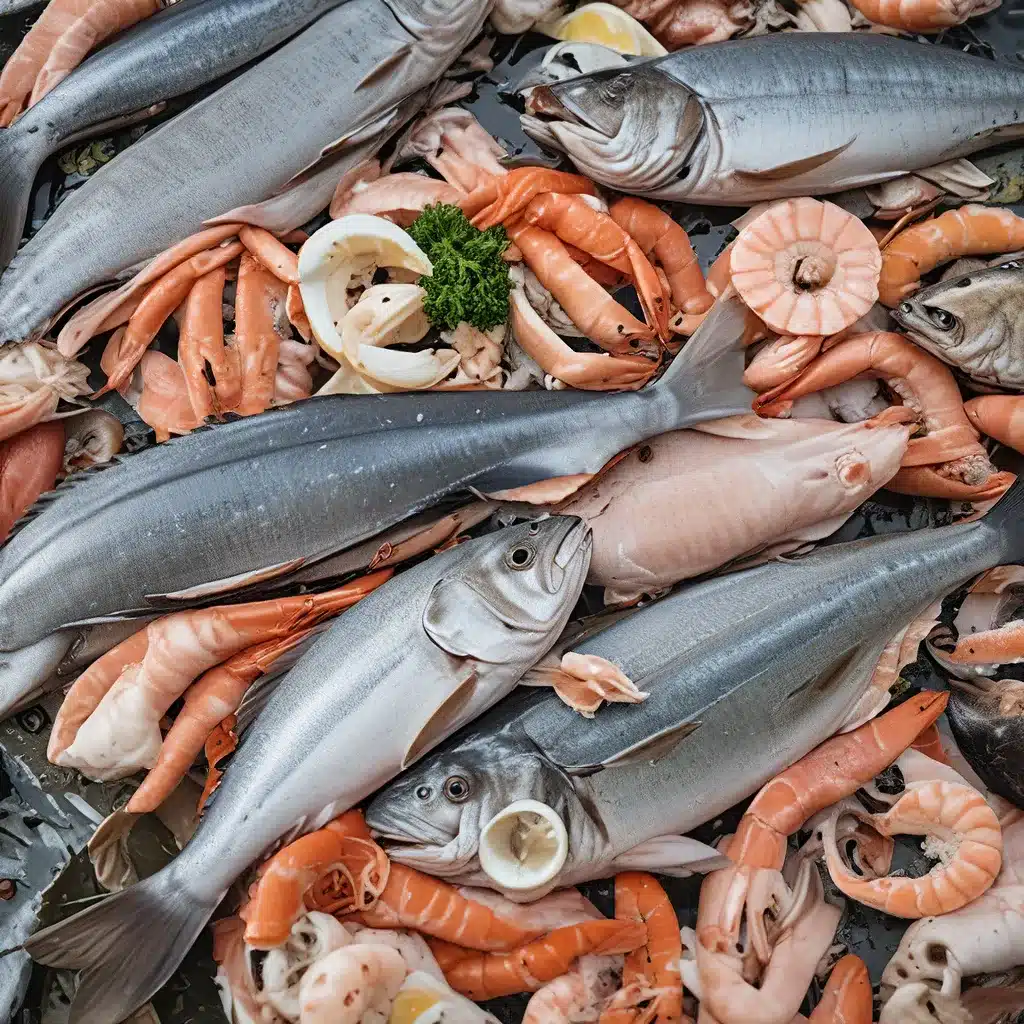
As a proud Portuguese-Canadian with deep ties to the sea, I’ve always had a special affinity for the ocean and the incredible creatures that call it home. Growing up on the picturesque Azores Islands, I witnessed firsthand how the fishing industry is the backbone of island economies, providing not just sustenance but a way of life deeply rooted in tradition and community.
It was this personal connection that initially drew me to the world of marine conservation. I was eager to learn how I could protect the precious ecosystems that had given so much to my family and countless others. But it wasn’t long before I encountered a shocking revelation that would change the course of my career – the notion that sustainable seafood consumption and ocean conservation were mutually exclusive.
I’ll never forget that fateful day when I attended a film screening hosted by a prominent marine conservation organization. As the lights dimmed, a volunteer coordinator took the stage and declared, “There is no such thing as sustainable fishing. You can’t eat seafood and care about the oceans.” The room erupted in nods of agreement, and I felt my stomach drop. How could this be true?
My mind immediately flashed to the images of my family, the fishermen hauling in their catches, and the cherished memories of shared seafood meals. Was I wrong to have such a deep appreciation for the ocean and its bounty? Were the very people I grew up with – the custodians of the sea – actually the enemy? I was utterly perplexed and couldn’t help but question the validity of this claim.
The Myth of Unsustainable Seafood
As I dug deeper into the issue, I realized that the notion of seafood consumption being inherently harmful to the oceans was a dangerous myth. In fact, the Food and Agriculture Organization (FAO) reports that 78% of all landings of marine fisheries come from biologically sustainable stocks. This means that the vast majority of seafood being harvested is being done so in a responsible, eco-friendly manner.
Moreover, the idea that overfishing by fishermen is the primary driver of fish depletion is simply not true. As stewards of the sea, fishermen have a vested interest in maintaining the long-term health of the ecosystems they rely on. Their livelihoods and cultural identities are inextricably linked to the well-being of the oceans. Overexploitation would only serve to undermine their very way of life.
The Inconvenient Truth About Seafood Sustainability
The reality is that the greatest threat to our oceans is not overfishing, but rather the impact of climate change and ocean acidification. These global phenomena are causing irreparable harm to marine habitats and species, far outpacing the effects of responsible fishing practices.
In fact, seafood is one of the most climate-friendly protein sources available. Studies have shown that seafood, especially farmed shellfish, has a lower carbon footprint than any land-based protein, including plant-based options. By choosing sustainable seafood, we can actually support the health of our oceans while nourishing our bodies.
Navigating the Complex World of Sustainable Seafood
I know firsthand that the world of sustainable seafood can be a confusing and daunting landscape to navigate. With a highly globalized supply chain, mixed messaging on eco-labels, and uncertainty around stock levels, it can be challenging for consumers to make informed choices.
However, the solution lies in building personal relationships with your local fishermen and seafood purveyors. By getting to know the people behind your seafood, you can gain valuable insights into the sourcing, fishing methods, and sustainability efforts that go into each catch.
Resources like the Local Catch Seafood Finder and the UW Sustainable Fisheries Map can also help you connect with community-supported fisheries and other sustainable seafood suppliers in your area. Don’t be afraid to ask questions – any self-respecting fishmonger will be eager to share the story behind their product.
Sustainable Seafood: A Win-Win for Oceans and Humans
The truth is, seafood consumption and ocean conservation are not mutually exclusive. In fact, by making informed, sustainable seafood choices, we can actively support the livelihoods of coastal communities, ensure food security for millions, and protect the health of our precious marine ecosystems.
Over 3 billion people worldwide rely on fish as their primary source of protein, and 595 million people are employed in the seafood industry. Cutting out seafood entirely would be a devastating blow to these communities, depriving them of an essential nutritional and economic resource.
Moreover, seafood is one of the healthiest and most environmentally friendly protein sources available. Rich in omega-3 fatty acids, seafood has been linked to a host of human health benefits, from reducing inflammation to supporting immune function. And with its low carbon footprint, it’s a critical ally in the fight against climate change.
A Future Where Oceans and Humans Thrive
As a marine scientist and lifelong seafood lover, I’ve made it my mission to debunk the myth that sustainable seafood and ocean conservation are at odds. By empowering consumers to make informed choices, supporting local fishermen, and advocating for responsible management practices, we can create a future where our oceans and our bodies can both thrive.
So the next time you’re standing at the seafood counter, I encourage you to ask questions, get to know your local fishermen, and choose sustainable options. Together, we can ensure that the bounty of the sea continues to nourish both our bodies and the delicate ecosystems that sustain us all.
Remember, when it comes to seafood, you can have your fish and eat it too. The path to a healthier ocean starts on your plate.

